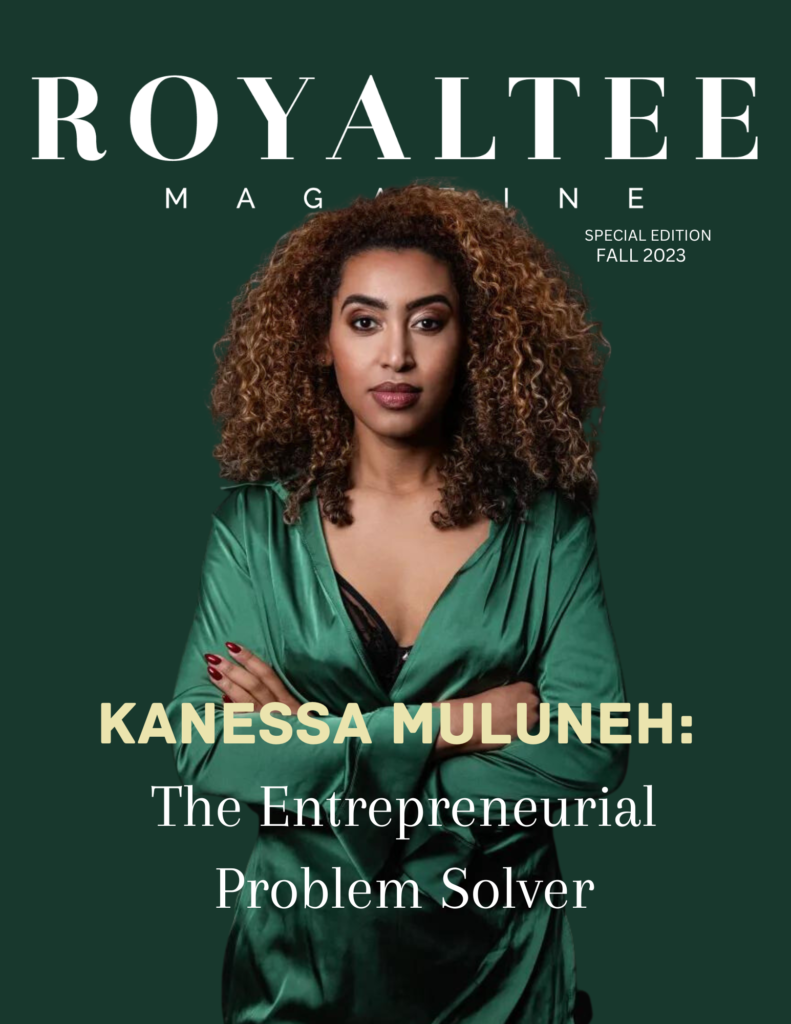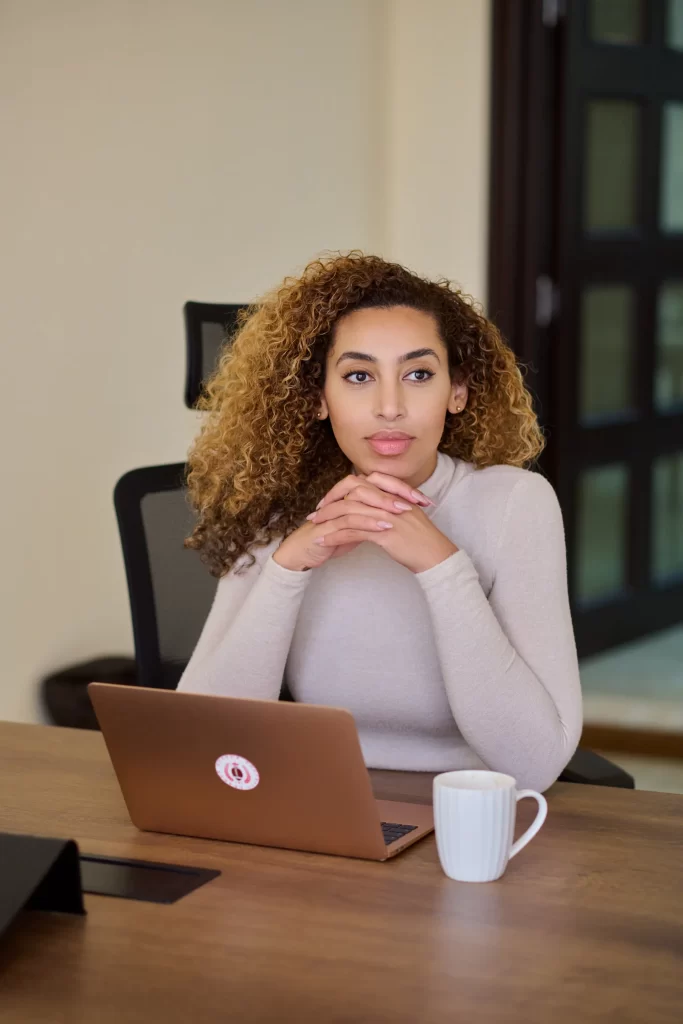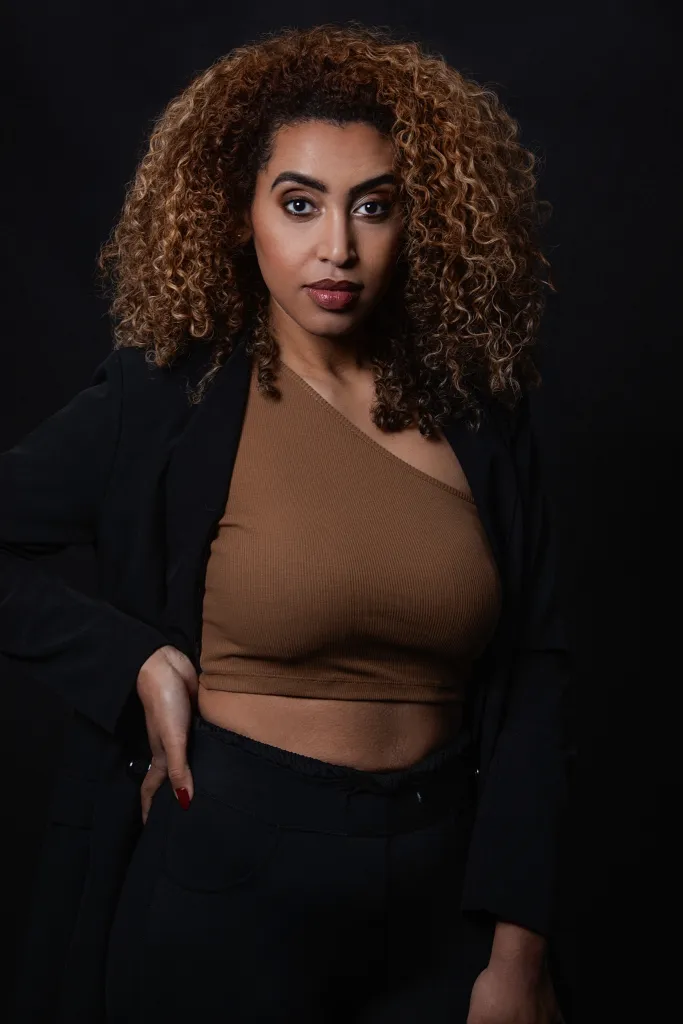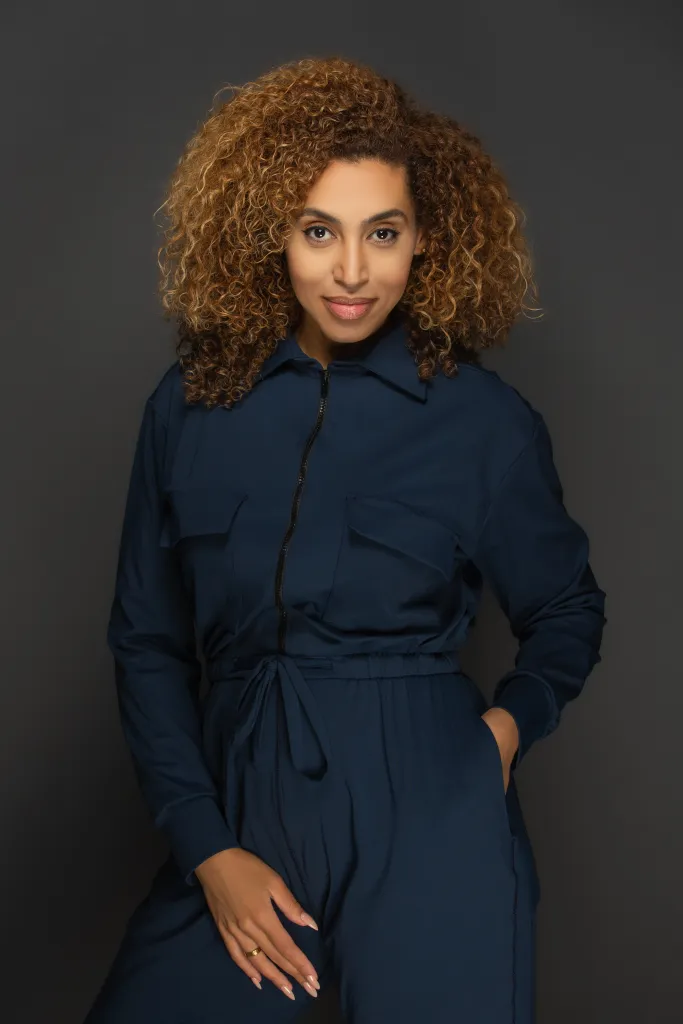Serial entrepreneur Kanessa Muluneh Is launching businesses and addressing societal issues at the same time.
“Who runs the world? Girls” Beyoncé’s 2011 anthem hit the nail on the hammer and it’s a mantra that still rings true today, and let’s face it before that song even came out. Here in the U.S., Black women continue to be the fastest growing group of entrepreneurs racking in millions in new businesses and job opportunities, as well as being the melanin representation in all industries that we need. But that’s not just an American trend.
Across the world, Black women are showing up and out in entrepreneurism and business; breaking barriers, shaping the culture, and creating spaces for future generations. Among those international bosses is Kanessa Muluneh, a serial entrepreneur shaking the room and making moves overseas in the areas of fashion, sports, and crypto.
As a child of immigrant parents, the Ethiopian wife and mother of three knows a thing or two about hard work as she rotates her time between her home in Dubai and Europe to handle business. Before entrepreneurship, she was a part-time nurse with plans to become a surgeon. But she quickly realized that was not the only way to a successful life. She had already founded several businesses from the ground up by the age of 33 and each one was her answer to a problem she felt needed a solution.
“I think if I could sum up my resume, I would literally say that I’m a problem solver,” she shares during our virtual conversation.
In other words, if you want the job right, you have to do it yourself.
Solving the lack of women in football
In 2017, Muluneh founded the Queen Football League in the Netherlands, in response to the lack of opportunity for women to compete in the league. She decided that if there was no league for women like her to join, she would start one.
The inspiration behind Queen Football was sparked in 2016 when she saw a video of a woman playing American football. An avid sports lover and weightlifter, Muluneh was inspired and wanted to play. But where she lived at the time, in Amsterdam, there were no women’s teams, only men’s.
A local coach in the area invited her to join the men’s team but Muluneh wanted to play with women.
“And he [the coach] was like, yeah, no, that’s not gonna happen,” she recalls the conversation. “ He said, ‘We don’t have that, your only option is to go to the U.S. and join the team there. Well, that wasn’t an option either.”
Motivated, she posted the video of the woman playing football on her Facebook, hoping to garner the interest of other women who may have felt the same way. Soon after, Muluneh’s DM became flooded with women interested in the sport, and the Queens League was born. The league expanded all the way to Belgium and included women from all walks of life, from single mothers to nurses. The women paid monthly dues, which included weekly training sessions, coaching from current or former male American football players and coaches, and game participation.
“I think if I could sum up my resume, I would literally say that I’m a problem solver.”
The league was deemed an extreme success and later sold to the Women’s Football League (WFL). It was the solution Muluneh was hoping for in terms of opening American football to women in Europe.
Pandemic pivoting off the field
But when the pandemic happened, like most businesses, Muluneh had to pivot and create a way in which the Queens League could survive and created Sporthy, a sports and fitness app.
“I saw all these instructors and my American football instructors. I saw them struggle, where they couldn’t teach, or they couldn’t practice their profession. I saw them online on Facebook, I saw them everywhere, going live with teaching all these moves and hosting online classes. And I was like, ‘You know what, maybe I can come up with a solution for them where they can still get paid because they were doing it for free.’
The app offers live workout programs and virtual gym access to its paid members.
“I know how demotivating it can be when you’re at home and you want to work out in your own space,” she says. “ So I came up with an idea where the coach or the instructor could go live or record a video and upload it there.”
Solving plus-size representation in fashion
But within founding the league, there arose another problem to address: body positivity.
While on the field, Muluneh began to take notice of the larger women on the field and their comfortability in regard to apparel. It was a factor she could resonate with as a mother.
“During my first pregnancy I gained weight and I was already wearing a size extra large and back then they didn’t make leggings like that in Europe, at least they didn’t make leggings bigger than extra large,’” she says. “So I told my husband well, I was gaining weight after my delivery. I don’t have any clothes anymore.”
While she was on maternity leave, she started designing her own sportswear which led to the birth of the launch of another new venture, the global plus-size brand MULU Love in 2018.
“And that’s where the story of MULU started basically, with my own problems. In my own struggles, I created clothes and started to wear them to the gym. And before I knew it, I started to get questions from women. They were like, ‘Where did you get this from?’
The line offers sizes all the way up to 7x and it includes men’s and women’s pants, vests, jumpsuits, tops, and shorts. MULU contributes to the demand for global plus-size clothing market growth which is expected to reach over $685 million by the year 2030.
“And it’s not just making the leggings bigger,” referring to the lack of larger leggings for women in Europe. “I came up with a solution and literally solved the problem.”
Solving the problem of acceptance
Although Muluneh’s ventures contribute in one way or another to societal problems, her personal life has been shedding light on the stigma of being a Black woman in Europe.
“Being in Europe, being Black in Europe means you actually come from a country recently, within 30 years or so. You came from a country that is not European.”
Muluneh’s parents immigrated from Ethiopia to the Netherlands when she was three years old to escape the hostile political situation in the country at the time. Growing up, she lived a traditional Ethiopian lifestyle at home but as soon as she walked out her door, she was confronted by the pressures to assimilate into the European lifestyle, which took a mental toll on her.
“In the beginning, I felt like I had to be accepted and I had to blend in,” she says,” basically be one of them. But the more I grew, the more I noticed that I didn’t need their acceptance at all.”
It’s a lesson that took years for Muluneh to embrace. But once she stopped hoping for what she refers to as ‘Eurocentric acceptance’, is when self-awareness and appreciation of her own roots kicked in.
“If I want acceptance, I just go to the community that accepts me, which is, in my case, the Ethiopian community. I started shifting my focus more to Africa, for example, to where I belong, where I come from, and where I actually get away. I don’t even have to fight for acceptance because I’m one of them.”
Today she empowers other women of color to celebrate their culture and individuality. “Who wants to blend in in any way? Who wants to be a gray mouse, you know?”
She added, “I think Black women here do need more support. But it’s very hard to just classify them as women of color,” referring to women from the Middle East, Africa, Asia as well as the U.S. “Because we come from all different backgrounds.”
She’s also committed to using the knowledge she’s acquired and resources she’s learned and giving back to the African market.
“One of the problems that I saw was online payments,” she explains. “Some countries were not able to do online payments. And I saw crypto as a solution and NFT, the whole space was a solution to the African market, where they can finally have access to transactions online using crypto.” During her spare time, she vlogs on her Instagram. Titling the series ‘Inside the Entrepreneur’s Mind’, she touches on various topics from Amazon and money-saving tips to juggling motherhood and documenting her postpartum.
“In the beginning, I felt like I had to be accepted and I had to blend in, basically be one of them. But the more I grew, the more I noticed that I didn’t need their acceptance at all.”
Regarding her legacy as a Royal Woman, Muluneh is unapologetically proud of her roots, her own personal journey to self-acceptance, and its influence over her successes up to this day.
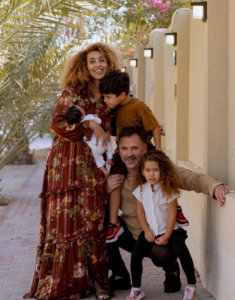
“I think the fact that I fought so hard to break free from societal expectations and just actually accept the real me. Coming from a country, where the first human was found, Queen Sheba existed and just the whole imperial culture. I’m proud to be a part of that and finally accept who I really am. That’s what makes me RoyalTee.”


